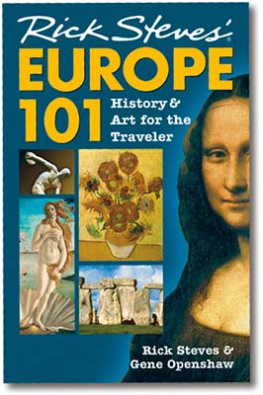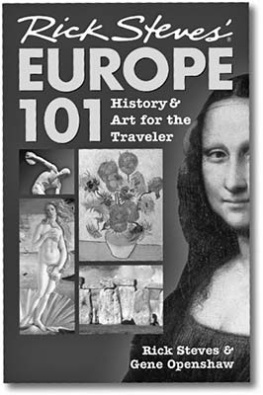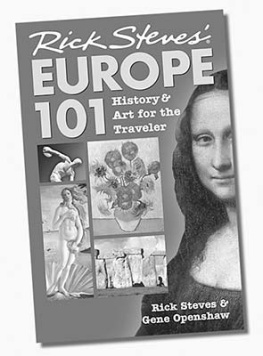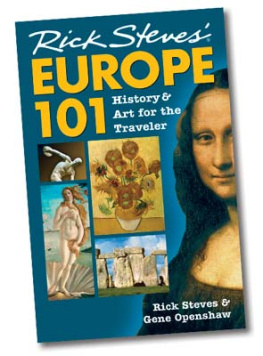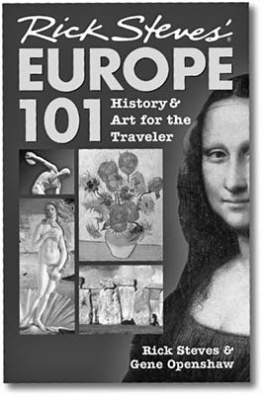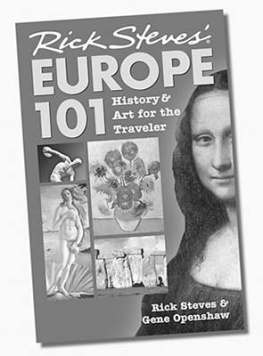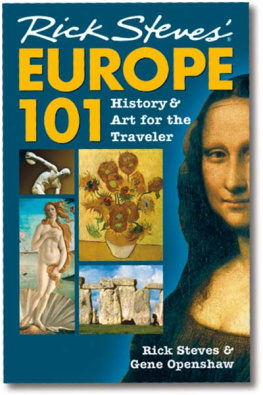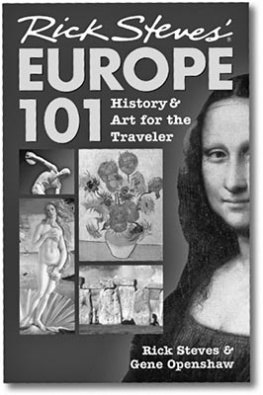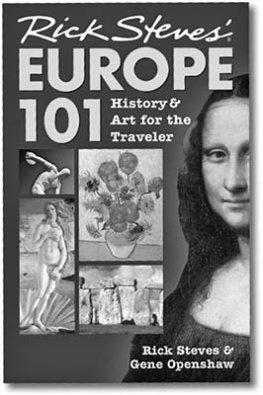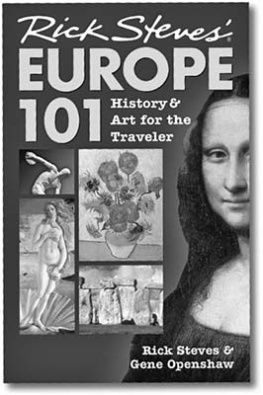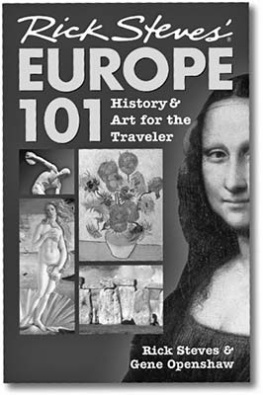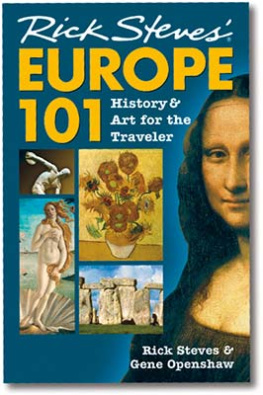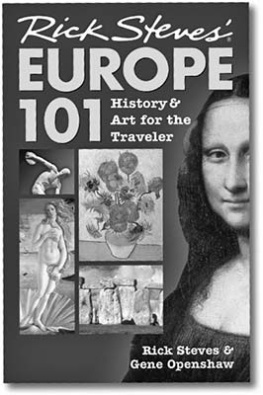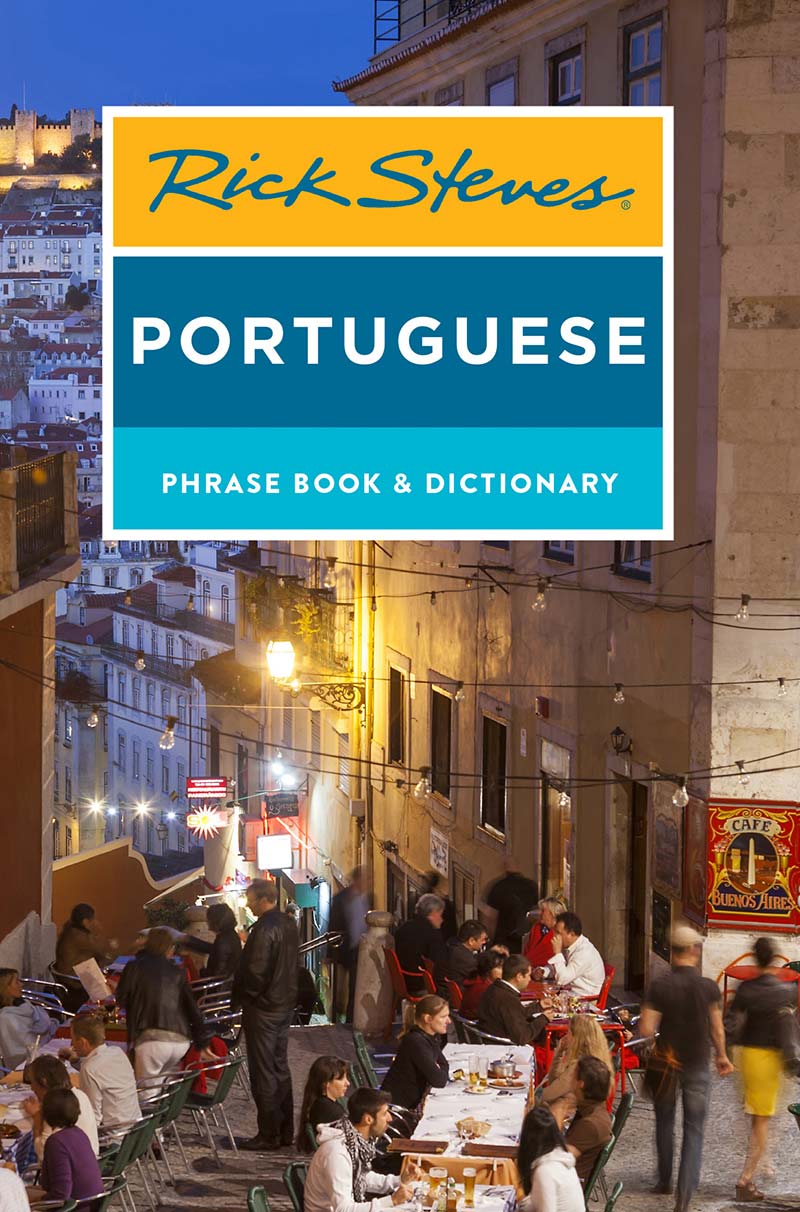Contents
Contents
Rick Steves
PORTUGUESE
PHRASE BOOK & DICTIONARY
Hi, Im Rick Steves.
Im the only monolingual speaker I know whos had the nerve to design a series of European phrase books. But thats one of the things that makes them better.
You see, after 30 summers of travel through Europe, Ive learned first-hand: (1) whats essential for communication in another country, and (2) whats not. Ive assembled the most important words and phrases in a logical, no-frills format, and Ive worked with native Europeans and seasoned travelers to give you the simplest, clearest translations possible.
But this book is more than just a pocket translator. The words and phrases have been carefully selected to help you have a smarter, smoother trip in Portugal. The key to getting more out of every travel dollar is to get closer to the local people, and to rely less on enter-tainment, restaurants, and hotels that cater only to foreign tourists. This book will not only help you order a meal at a locals-only Lisbon restaurantit will help you talk with the family who runs the place... about their kids, social issues, travel dreams, and favorite msica. Long after your memories of museums have faded, youll still treasure the personal encounters you had with your new Iberian friends.
A good phrase book should help you enjoy your Iberian experiencenot just survive itso Ive added a healthy dose of humor. A few phrases are just for fun and arent meant to be used at all. Most of the phrases are for real and should be used with please (por favor). I know you can tell the difference.
To get the most out of this book, take the time to internalize and put into practice my Portuguese pronunciation tips. Dont worry too much about memorizing grammatical rules, like the gender of a nounthe important thing is to communicate!
This book has a handy dictionary and a nifty menu decoder. Youll also find tongue twisters, international words, telephone tips, and a handy tear-out cheat sheet. Tear it out and keep it in your pocket, so you can easily memorize key phrases during otherwise idle moments. As you prepare for your trip, you may want to read the most recent edition of my Rick Steves Portugal guidebook.
The Portuguese speak less English than their European neighbors. But while the language barrier may seem a little higher, the locals are happy to give an extra boost to any traveler who makes an effort to communicate.
My goal is to help you become a more confident, extroverted traveler. If this phrase book helps make that happen, or if you have suggestions for making it better, Id love to hear from you. I personally read and value all feedback.
Happy travels,
Portuguese
...is your passport to Europes bargain basement. For its wonderful pricetag, youll enjoy piles of fresh seafood, brilliant sunshine, and local character that often feels decades behind the rest of Europe. With its Old World charm comes a bigger language barrier than youll find elsewhere in Europe. A phrase book is of greater value here than anywhere else in western Europe.
Here are a few tips on pronouncing Portuguese words:
C usually sounds like C in cat.
But C followed by E or I sounds like S in sun.
sounds like S in sun.
CH sounds like SH in shine.
G usually sounds like G in go.
But G followed by E or I sounds like S in treasure.
H is silent.
J sounds like S in treasure.
LH sounds like LI in billion.
NH sounds like NI in onion.
R is trrrilled.
S can sound like S in sun (at the beginning of a word),
Z in zoo (between vowels), or SH in shine.
SS sounds like S in sun.
Portuguese vowels:
A can sound like A in father or A in sang.
E can sound like E in get, AY in play, or I in wish.
sounds like E in get.
sounds like AY in play.
I sounds like EE in seed.
O can sound like O in note, AW in raw, or OO in moon.
and OU sound like O in note.
U sounds like OO in moon.
When youre speaking a Romance language, sex is unavoidable. A man is simptico (friendly), a woman is simptica. In this book, we show bisexual words like this: simptico[a]. If youre speaking of a female (which includes females speaking about themselves), use the a ending. Its always pronounced ah. A word that ends in r, such as cantor (singer), will appear like this: cantor[a]. A cantora is a female singer. A word ending in e, such as interessante (interesting), applies to either sex.
Adjectives agree with the noun. A clean room is a quarto limpo, a clean towel is a toalha limpa. Quartos limpos have toalhas limpas. Youll be quizzed on this later.
If a word ends in a vowel, the Portuguese usually stress the second-to-last syllable. Words ending in a consonant are stressed on the last syllable. To override these rules, the Portuguese add an accent mark (such as , ~, or ^) to the syllable that should be stressed, like this: rpido (fast) is pronounced rah-pee-doo.
Just like French, its linguistic buddy, Portuguese has nasal sounds. A vowel followed by either n or m or topped with a ~ (such as or ) is usually nasalized. In the phonetics, nasalized vowels are indicated by an underlined n or w . As you say the vowel, let its sound come through your nose as well as your mouth.
Here are the phonetics for nasal vowels:
| ay n | nasalize the AY in day. |
| oh n | nasalize the O in bone. |
| oo n | nasalize the O in moon. |
| o w | nasalize the OW in now. |
Some words have only a slight nasal sound. To help you pronounce these words, I add an ng or n in the phonetics: sim (meaning yes) is pronounced seeng, and muito (meaning very) like mween-too.
Heres a quick guide to the rest of the phonetics used in this book:
| a | like A in sang. |
| ah | like A in father. |
| ay |


